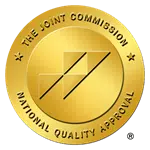1. Addiction is not treatable: Addiction is challenging and treatable: Treatment is not for the addiction but for the person experiencing addiction and addictive behaviors. Those struggling with addiction and addictive behaviors are receptive to effective treatment if certain criteria are met first. In treatment and counseling we look at motivation, available treatment options and any available support from family and friends. “Once and addict, always an addict”, this sentiment has been spoken in meeting rooms around the world and is a core belief of the Anonymous programs. We understand that addiction is a complex biological, psychological and social issue affecting millions of people around the globe. We also understand that people recover from addiction and end the cycle of addiction. What the future holds is dependent on the quality of care, connection, aftercare, motivation and safe and stable relationships with treatment professionals, family, friends and others in recovery.
2. Only 12-Step Programs work to end addiction: No single treatment is appropriate for everyone. Treatment options are first assessed based on drug of choice, length of use, history of treatment, support network, availability of professionals and motivation to stay abstinent. Whether the treatment selected is traditional or alternative, 12-Step programs are just one option. Often times a combination of recovery options produce long-term recovery, health and wellness.
3. Medication use with those struggling with addiction and addictive behaviors is not considered a good option because it fosters continued dependence: Medications are important for many people, particularly when combined with counseling and other therapies. It is important over the course of treatment to continually assess the overall needs of people to best meet the changes that are hopefully occurring with successful relational interventions. Medication for anxiety, detoxification, and depression are sometimes a healthy choice when used in combination with various treatment professionals and services while treating the whole person, not just the addiction or unwanted addictive behaviors. In addition to counseling, a client may require medication, medical services, family therapy, parenting skill development, social and or legal services. We have seen that a team approach with active consultation between providers offers the best outcomes and medication assessment and monitoring is just one treatment option to be considered.
4. Treatment needs to be voluntary for it to be effective: Historically, voluntarily seeking services for addiction provides better long-term success for sustained sobriety. Often times, entry into treatment only occurs when a person experiences a significant consequence that interrupts the addiction or addictive behavioral acting out. Effective treatment and long term sobriety from addiction and unwanted behaviors happens regardless of how someone gets help. It is true however that those who are forced or coerced into treatment have more failed recovery attempts prior to sustained recovery.
5. Drug use during treatment should be grounds for ending services: Drug use or relapse during counseling is a part of recovery and should be considered a normal part of treatment. It also indicates a possible need for a treatment plan adjustment or the addition of other professionals and services. Drug use is a non-verbal form of communication. Helping clients learn to use relationships prior to using not only strengthens the therapeutic relationship but serves overtime as the antidote to continued addiction and addictive behaviors.
6. Addiction is a problem of not having willpower: Drug and alcohol use over time changes brain chemistry and hijacks the reward centers of the brain. These biological, psychological and social issues affect ones ability to remain sober from substances. Willpower or self-control is a valuable tool for a person to use when faced with choices but addiction is very powerful. People can stop drug and alcohol use. When it is that persons time to be well, when the right support is available or sought out and when a person experiences more consequences than reward.


















